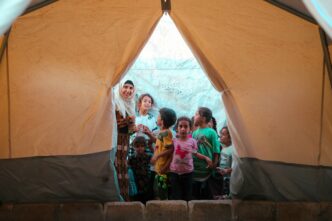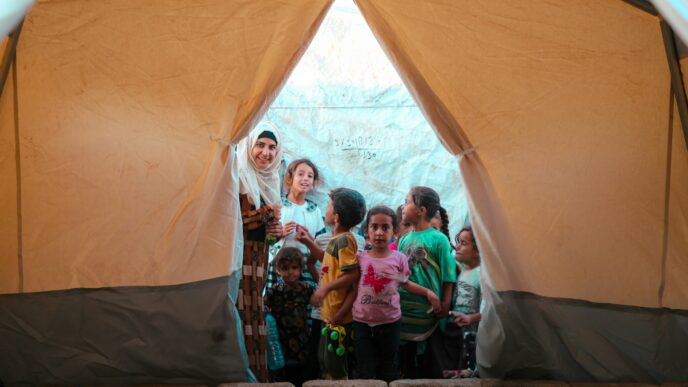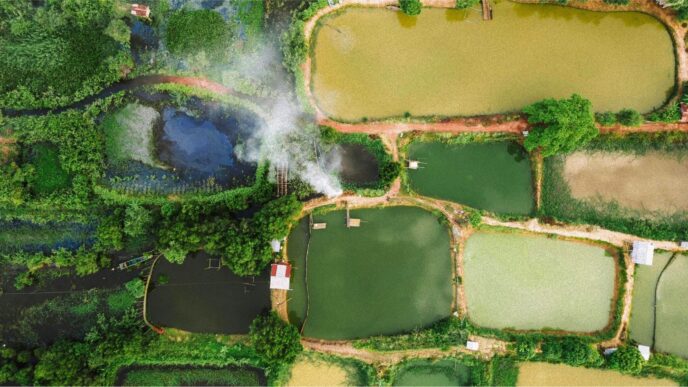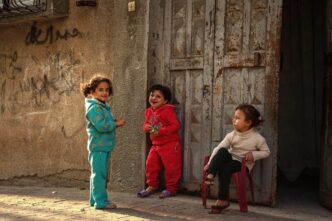In times of crisis—whether it’s war, famine, natural disasters, or displacement—aid should be about need, not politics. Yet, for Muslim-led charities, delivering humanitarian relief is often as much about navigating financial and political barriers as it is about reaching people in need.
Muslim charities play a critical role in global aid efforts. They are often among the first responders in crisis zones, providing relief in places that many mainstream aid organisations hesitate to enter. Whether in Gaza, Syria, Rohingya refugee camps, or Yemen, Muslim-led NGOs are at the forefront, filling the gaps left by international institutions. However, instead of being recognised as essential humanitarian actors, they are routinely treated with suspicion, their funding blocked, and their operations hindered by banking restrictions, government policies, and media narratives that paint them as security threats rather than aid providers.
Why does this happen? Why do Muslim charities face disproportionate scrutiny while their non-Muslim counterparts continue to operate with relative ease? And what are the consequences when aid organisations are silenced, not because of corruption or misconduct, but because of their faith?
This article explores how systemic Islamophobia in the humanitarian sector is not just making it harder for Muslim-led charities to function—it is actively harming the very people they are trying to serve.
How Muslim Charities Are Being Shut Out of the Financial System
Perhaps one of the most devastating forms of discrimination against Muslim charities is financial exclusion. Banks and financial institutions—under the guise of “de-risking” policies—have shut down accounts, blocked transactions, and refused services to Muslim-led NGOs, often without explanation.
The problem is particularly severe for charities working in conflict zones, where financial regulations have become hyper-restrictive due to concerns over counterterrorism financing. But while non-Muslim charities can navigate these restrictions with relative ease, Muslim-led organisations face a far more hostile financial landscape.
- Accounts Closed Without Justification: In the UK, several major banks have closed the accounts of well-established Muslim charities, including Interpal, Muslim Aid, and Islamic Relief, leaving them unable to process donations or pay staff. Often, these closures happen without warning or explanation.
- Blocked Transfers to Crisis Zones: Even when Muslim charities do manage to maintain bank accounts, their transactions to regions like Gaza, Syria, and Somalia are routinely flagged or blocked, delaying or even preventing aid from reaching those who need it most.
- The “Chilling Effect” on Donors: Many Muslim donors hesitate to give to charities that have been targeted by financial restrictions, fearing their donations could be misinterpreted as funding extremism, further weakening these organisations.
Banks claim they are simply complying with financial regulations, but the pattern of account closures disproportionately targeting Muslim charities suggests a clear case of religious discrimination masquerading as financial caution.
The War on Terror’s Lasting Impact on Humanitarian Work
The roots of this discrimination can be traced back to the post-9/11 era, when counterterrorism laws reshaped the way aid work was regulated. Under the US Patriot Act, the UK’s Terrorism Act 2000, and similar laws across Europe, governments introduced sweeping powers that allowed them to freeze assets, criminalise transactions to certain regions, and place charities under heavy surveillance.
While these laws were designed to stop money from reaching terrorist organisations, they have routinely been weaponised against Muslim-led charities, often without any credible evidence of wrongdoing.
- Pre-emptive Blacklisting: Some Muslim charities have been placed on watchlists or had their assets frozen based on mere suspicion rather than hard evidence. The Holy Land Foundation case in the US remains one of the most infamous examples—an organisation that provided aid to Palestinians was shut down and its leaders imprisoned, despite no evidence that its funds had been used for terrorism.
- Unfair Scrutiny: A report by Statewatch and Human Security Collective (2021) found that Muslim-led charities are subjected to higher levels of audits, investigations, and bureaucratic delays than non-Muslim charities working in the same conflict zones.
- Fear-Driven Policy Making: Governments often over-police Muslim charities in an attempt to appear tough on extremism, while largely ignoring corruption and misconduct in non-Muslim aid organisations.
This has created a two-tiered system, where Muslim-led humanitarian work is automatically treated as suspicious, forcing charities to constantly defend their legitimacy rather than focus on delivering aid.
Double Standards in the Humanitarian Sector
One of the most glaring aspects of Islamophobia in aid work is the double standard in how charities are treated based on their religious or cultural identity.
- Non-Muslim Charities Face Less Scrutiny: Large, secular Western charities working in conflict zones rarely face the same level of financial restrictions and government scrutiny as Muslim-led organisations. For example, major charities like Oxfam and Save the Children operate in high-risk areas without the same level of banking interference or suspicion.
- When Muslim NGOs Do It, It’s Extremism—When Others Do It, It’s Humanitarianism: If a Muslim charity supports orphans in Gaza, it is scrutinised for potential “terrorist links.” Meanwhile, when a Christian charity funds children’s education in the same region, it is praised for its generosity.
- Media Narratives Perpetuate Bias: Muslim charities are often portrayed as potentially dangerous, while Western-led charities receive favourable media coverage—even when accused of serious misconduct.
This bias isn’t just unfair—it is actively undermining the humanitarian sector by blocking some of the most effective and committed organisations from doing their work.
The Humanitarian Cost of Islamophobia
When Muslim charities are restricted, it is not just the organisations that suffer—it is the people they are trying to help.
- Delays in aid deliveries mean that refugees in Syria, Palestine, and Rohingya camps are left waiting for life-saving food, water, and medical supplies.
- Limited funding means fewer schools, hospitals, and relief programmes for vulnerable communities.
- Psychological toll on humanitarian workers, who must constantly fight suspicion and bureaucracy rather than focusing on their mission.
By targeting Muslim charities, governments and financial institutions are not stopping extremism—they are punishing vulnerable communities who depend on this aid for survival.
The Resilience of Muslim Charities
Despite these challenges, Muslim-led humanitarian organisations have not given up. They have adapted, innovated, and continued to serve.
- New financial models: Some charities have developed alternative banking and crowdfunding methods to avoid traditional banking restrictions.
- Legal battles: Organisations like CAGE and IHRC continue to challenge unjust counterterrorism policies in court.
- Greater transparency efforts: Muslim NGOs have worked tirelessly to ensure compliance, transparency, and accountability, often going beyond the legal requirements placed on them.
The Way Forward: Fighting Back Against Islamophobia in Aid
To challenge this discrimination, several key actions are needed:
- Policy Change: Governments must review and reform counterterrorism laws that disproportionately target Muslim charities.
- Financial Fairness: Banks must be held accountable for discriminatory de-risking policies.
- Stronger Muslim Advocacy: The Muslim community must support independent watchdogs and legal advocacy groups to challenge injustice in the humanitarian sector.
- Public Awareness: More people need to be aware of how Islamophobia affects aid work—and demand change.
Conclusion: The Fight for Fairness in Humanitarian Work
Muslim charities are not just legitimate actors in global humanitarianism—they are essential. Yet, systemic Islamophobia continues to hinder their work, creating barriers that have real consequences for those in need.
This is not just a fight for Muslim-led NGOs—it is a fight for justice, fairness, and the principle that aid should be based on need, not religion. The sooner governments, financial institutions, and the wider humanitarian sector recognise this, the sooner we can build a world where all humanitarians—regardless of faith—are able to serve without fear, suspicion, or restriction.














